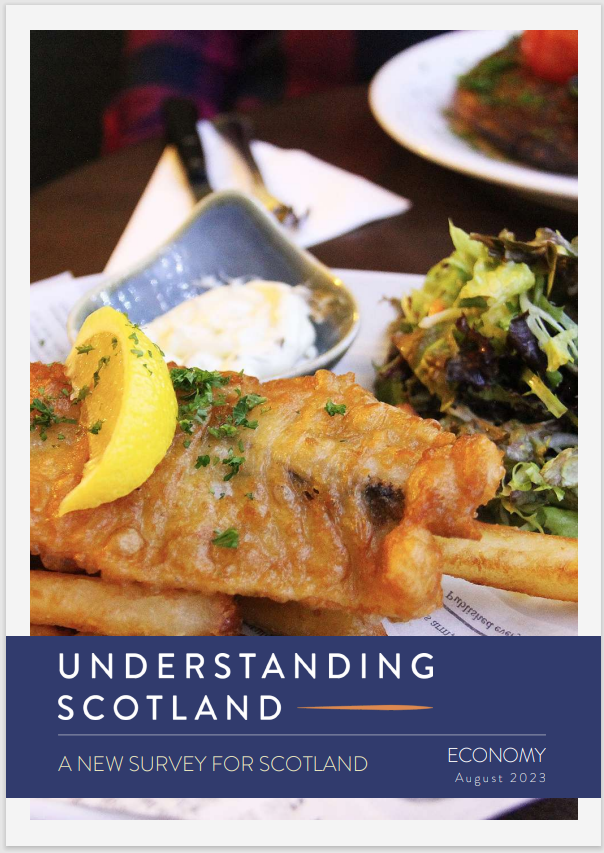This wave of Understanding Scotland demonstrates the persistent dominance of cost of living concerns on public attitudes and behaviours, as we continue to grapple with the wide-ranging consequences of rising prices and a squeeze on our finances.
The public remains generally pessimistic about Scotland’s direction of travel, as well as current and future economic conditions. Pessimism is gradually subsiding, but more are uncertain about Scotland’s direction and expect deteriorated conditions to endure over the next year.
Significant numbers are still struggling with the cost of living, engaging in cost-saving behaviours where possible and relying on diverse strategies to pay for expenses. These cost-saving behaviours shape every facet of Scots’ lives, including how they shop and what they eat. There may be some marginally more positive news in the media but this is not yet translating into greater optimism or changing behaviour.
An overwhelming majority is dissatisfied with support offered by government and private companies in helping people cope with inflation, reporting that there is still more to be done to address current economic woes.
Despite the prominence of cost of living concerns, Scots continue to draw attention to many public and economic priorities. Healthcare and the NHS follow closely behind the cost of living, with the economy, poverty, and the environment trailing behind. Particularly, emphasis on the environment and climate change has grown substantially since last wave, with 18% identifying the issue as a top three priority.
This report explores these issues and others, examining how the Scottish public navigates economic challenges, including their attitudes and behaviours.
Key Takeaways
This edition of Understanding Scotland brings you insights from over 2,000 members of the adult (16+) Scottish public on the most important aspects of our society and economy.
1. Scots remain sceptical about the economy and economic recovery.
Evaluations of the current and future economy are still overwhelmingly negative, although perceptions are shifting to slightly less negative categories. 38% say that economic conditions are much worse now than a year ago, down from 46% in May. In contrast, those saying conditions are somewhat worse or the same has risen by five and three percentage points respectively. Almost a third (32%) believe that economic conditions will be the same this time next year, up from 28% in May.
2. A majority of Scots think that Scotland is heading in the wrong direction.
Over half (56%) of the public believes that things in Scotland are headed in the wrong direction, while 24% believe things are headed in the right direction and 20% say they don’t know, a rise of two percentage points since May.
3. Youngest generation (16-34) least pessimistic about Scotland’s economy and direction.
Those aged 16 to 34 are least likely to report that things in Scotland are heading in the wrong direction (44%), in comparison to those of every other age. They are also least likely to say that general economic conditions have worsened in the last year and to expect conditions to continue to deteriorate.
4. Cost of living continues to dominate the conversation.
Cost of living/inflation and healthcare and the NHS remain top concerns amongst the public, although cost of living has overtaken healthcare for the first time in a year. Cost of living remains far and away the most common economic priority.
5. We are continuing to cut back spending.
Across the board, Scots are reducing expenditure on energy use (69%), non-essential purchases (67%) and leisure purchases (61%), with little sign of letting up; these rates have remained stable from May.
6. We are changing how we shop and what we eat…
Half (52%) of people say they are shopping for food based on price rather than health, and over 1 in 4 are reducing the quantity or quality of fruits and vegetables in their diet (28%), consuming more packaged or processed foods (27%), or choosing foods that require no or very little cooking (25%). Individuals also mention that they are shopping around, changing brands or shops, buying reduced food, bulk/batch cooking and reducing food waste as a response to rising prices.
7. …And some are engaging in extreme behaviours, detrimental to health.
The number of people cutting down on meal and portion sizes continues to rise, up from 21% last quarter to nearly 1 in 4 (23%) this quarter. 15% still report that they are skipping meals. Of those skipping meals, some say that they are eating only one meal a day.
8. Working class Scots and those with children have been hardest hit.
22% of those in grades C2DE report that their finances are much worse now than a year ago while 15% of those in grades C2DE believe their situation will worsen severely this year; 1 in 4 (25%) individuals in a household with children think their finances are much worse than a year ago, in comparison to 17% of those in households without children.
9. Dissatisfaction with the support offered by public and private bodies lingers.
A majority of Scots believe that the UK Government, Scottish Government, Local Authorities, energy companies and banks have done too little to help people cope with rising cost of living.
10. Concerns about the environment are rising.
18% rate the environment and climate change as a top issue facing Scotland: making it one of the top three priorities for the first time in this series. Only 10% said the same in May. Additionally, 14% list the green economy as a top issue for the Scottish economy, compared to 9% last wave.
